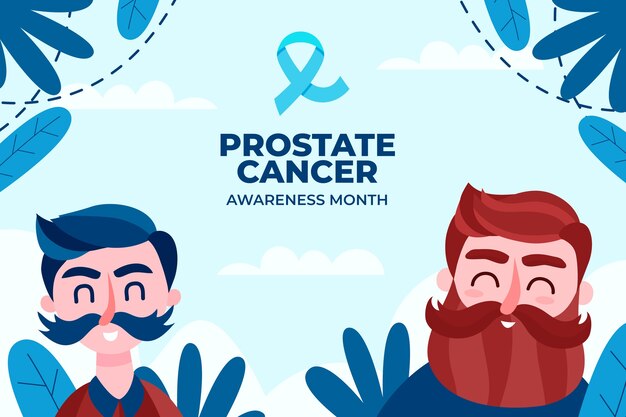Key Facts about Prostate Cancer

Prostate cancer is the second most common cancer in men worldwide.
One in nine men will be diagnosed with prostate cancer in their lifetime.
Prostate cancer usually affects older men, with the average age at diagnosis being 66.
African American men are at a higher risk of developing prostate cancer.
Family history and genetics can play a role in the development of prostate cancer.
Prostate cancer often grows slowly, and many men may live with it without experiencing any symptoms or complications.
Prostate-specific antigen (PSA) testing is commonly used to screen for prostate cancer.
Elevated PSA levels can indicate the presence of prostate cancer, but it is not a definite diagnosis.
Digital rectal exams are also used to detect abnormalities in the prostate.
Early detection and treatment can significantly increase the chances of curing prostate cancer.
Treatment options for prostate cancer include surgery, radiation therapy, hormone therapy, and active surveillance.
Active surveillance involves monitoring the cancer without immediate treatment, especially for low-risk cases.
Prostate cancer treatment decisions should be personalized based on the individual’s age, overall health, and cancer stage.
Side effects of prostate cancer treatment can include urinary incontinence, erectile dysfunction, and fatigue.
Regular exercise and a healthy diet may lower the risk of developing prostate cancer.
Dietary factors, such as consuming red meat and high-fat dairy products, may increase prostate cancer risk.
Prostate cancer can also spread to other parts of the body, including the bones.
Advanced prostate cancer may require treatment with chemotherapy drugs.
Prostate cancer survival rates have been steadily improving over the years.
Prostate cancer research aims to develop more targeted and effective treatments.
Men with a higher level of education and income may have better access to prostate cancer screening and treatment.
Prostate cancer support groups can provide emotional and practical support for patients and their families.
Regular follow-up appointments are crucial for monitoring prostate cancer progression and adjusting treatment plans if necessary.
Clinical trials are conducted to evaluate new treatments and therapies for prostate cancer.
Prostate cancer awareness campaigns aim to educate men about the importance of early detection and screening.
The risk of prostate cancer can be reduced by maintaining a healthy weight and avoiding obesity.
Prostate cancer incidence rates vary across different countries and populations.
Prostate cancer may be a hereditary condition in some families.
Regular prostate cancer screenings should be discussed with a healthcare professional, taking into account each individual’s risk factors and preferences.
Prostate cancer is not a death sentence, and many men live long and fulfilling lives after treatment.
The Gleason score is a system used to grade the aggressiveness of prostate cancer cells.
Active surveillance may be recommended for certain cases to avoid overtreatment and unnecessary side effects.
In some cases, prostate cancer treatment may also include cryotherapy or high-intensity focused ultrasound (HIFU).
The risk of developing prostate cancer increases with age, especially after the age of 50.
Prostate cancer can cause various urinary symptoms, such as frequent urination, weak urine flow, or blood in the urine.
Regular exercise can help improve quality of life for prostate cancer survivors and reduce the risk of recurrence.
Prostate cancer can have a significant impact on a person’s mental health and emotional well-being.
Men with a family history of prostate cancer may be advised to start screening at an earlier age.
Radical prostatectomy is a surgical procedure to remove the prostate gland and surrounding tissue.
Brachytherapy is a type of radiation therapy that involves placing radioactive seeds in the prostate gland to kill cancer cells.
Some studies suggest that certain dietary supplements, such as lycopene and green tea, may have a protective effect against prostate cancer.
Regular prostate exams are essential even for men without symptoms, as early-stage prostate cancer may not cause noticeable signs.
Watching for changes in urinary habits or experiencing pain or discomfort in the prostate area should prompt a visit to a healthcare professional.
Prostate cancer treatment can be multidisciplinary, involving urologists, radiation oncologists, medical oncologists, and other specialists.
Prostate cancer survivors are encouraged to join support programs and participate in survivorship care plans to address ongoing needs and concerns.